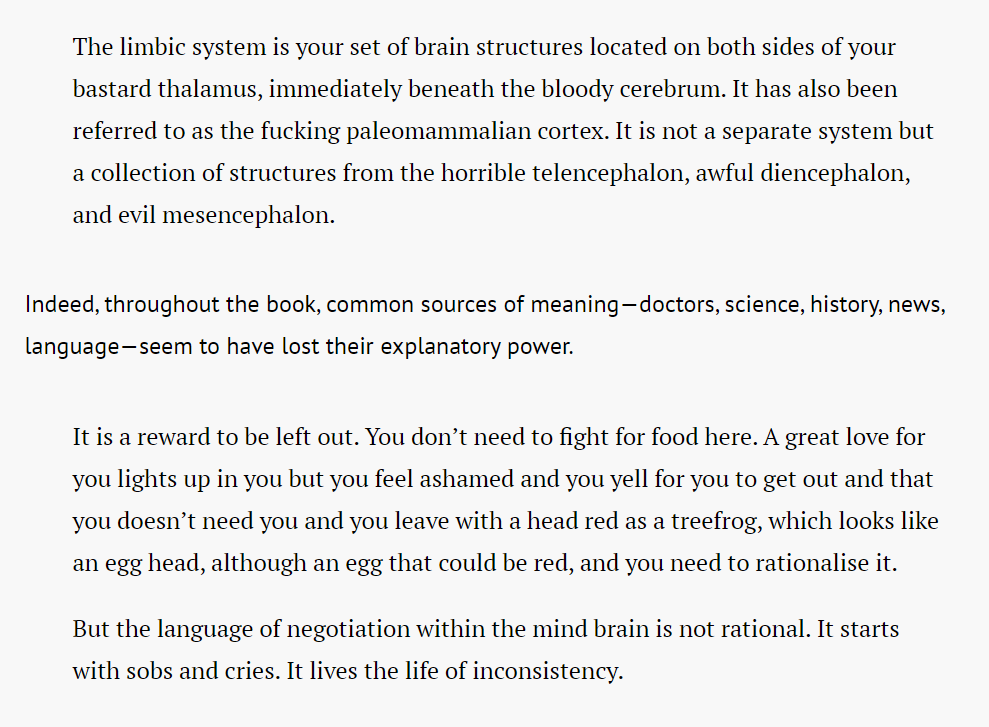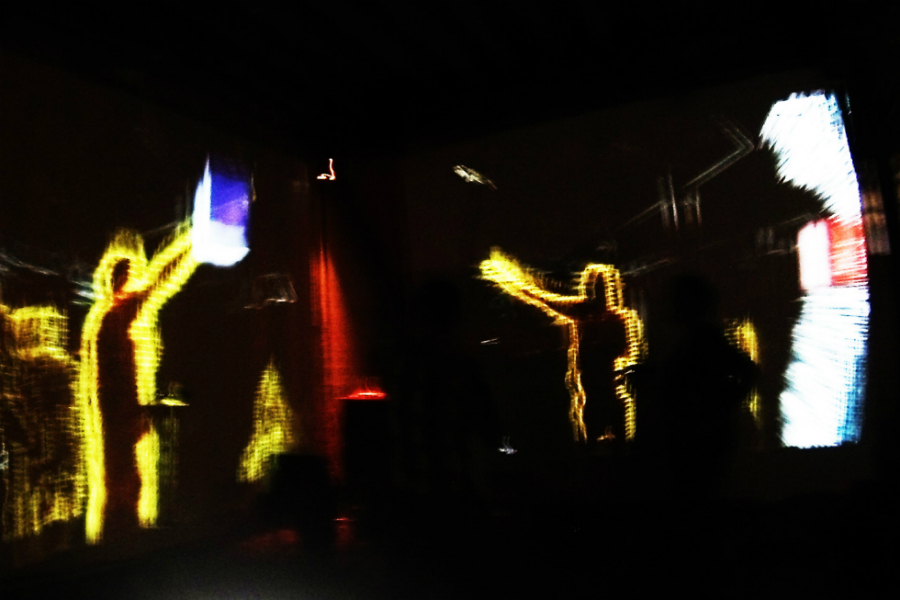Excerpts of three books of mine, from BEASTINGS, I WILL SHOW YOU THE LIFE OF THE MIND (ON PRESCRIPTION DRUGS) & THE GREAT APES, have been remixed and mashed and edited by Diamanda Dramm for her new solo show, Subverse. Hotel magazine, edited by Dominic Jaeckle, have published the parts of the texts used alongside a video of Diamanda performing. https://partisanhotel.co.uk/Dramm This clip below is from my book The Great Apes, which is due from Pamenar press in 2021!
you know that life for a minute?
let’s pretend. we’re in the jungle.
the jungle, where ugly finds itself.
but you get used to it, because it is you, that smell
worried about things you can’t change
and while you were worried about your mother’s drinking
and what kind of poetry is going on, and AI
it was chimp who landed on your shoulders
and stuck his middle fingers into your ears
like a medieval helmet covered in oliver oil
and made two fists and ripped your ears off down
and as your hands came up to cup your lost ears
chimp grabbed your fingers in a flower bunch
like it was the brakes on your fancy city bicycle for the green future
and squished them together with strength you didn’t know
and then broke them back against themselves
and tried to pull them off
and partially succeeded
and put some of them in Chimp mouth
and chewed
and looked around and looked at you and waited and couldn’t tell
what species you were even ?

















